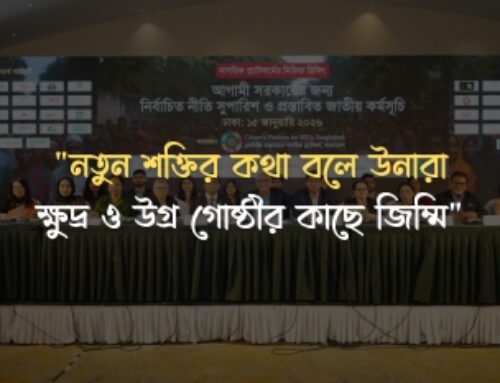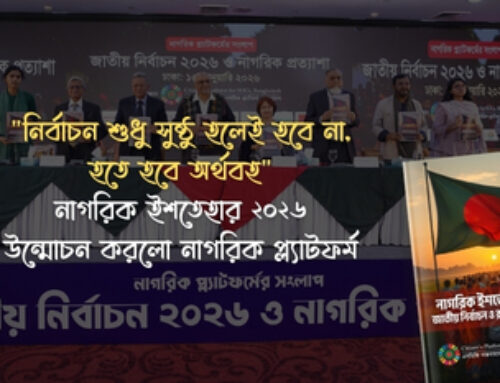It is the high time for the government, to pass an ‘Anti-Discrimination Act’ to ensure the right-based development of the plain-land indigenous, dalit and other marginalised communities. It is often found that these communities are not properly incorporated in various national censuses. Such systematic discriminations deter the inclusion of their development priorities in the national policy frameworks. Under the circumstances, it is of utmost importance that a special census is undertaken for these communities, to determine their actual number and representation in the development landscape. The government should consider providing special access for members of these communities in areas of education, employment and sports as part of effort to improve their livelihood.

These opinions were shared at a dialogue titled “Rights of Plainland Indigenous People and Dalit in the context of the SDGs,” held on 27 August 2019, at the Medha Onushilon Kendra of ESDO Office in Thakurgaon. The event was organised jointly by HEKS/EPER, Eco Social Development Organization (ESDO), Network of Non-Mainstreamed Marginalized Communities (NNMC) and Citizen’s Platform for SDGs, Bangladesh.

Mr Sifat Imranur Rouf, Project Officer, HEKS/EPER, presented a keynote at the event. His presentation was focused on the plights and neglected areas of marginalised groups’ lives and livelihood, particularly in light of SDGs, its commitment for inclusivity, and perspectives of various national policies and plans.

Chief Guest of the dialogue Mr Fazle Hossain Badsha, MP, Chair of the Parliamentary Caucus on Indigenous and Minority Affairs informed the audience that, the draft ‘Bangladesh Indigenous Peoples’ Rights Act’ was submitted to the Parliament in 2014; this law could be a critical tool in bringing the desired change in improving the livelihoods of the indigenous and marginalised communities and securing their rights.

Dr Debapriya Bhattacharya, Convenor of the Citizen’s Platform and Distinguished Fellow, Centre for Policy Dialogue (CPD) who was the Special Speaker at the dialogue, mentioned that the undocumented representation marginalised communities in various national censuses is affecting their development opportunities, as they are being deprived of adequate budgetary allocations and other amenities. An ‘Anti-Discrimination Act’ has become a necessity now to protect rights and social security of these people.

Attending as the Special Guest, Mr Md. Nur Kutubul Alam, Additional Deputy Commissioner (General), Thakurgaon underscored that the government is very attentive to the challenges of the marginalised communities, so that they are not left behind from the national development process.

Mr Abul Hasnat, acting Country Director of HEKS/EPER delivered an introductory remarks at the beginning of the dialogue and pledged for continuous support for the development of marginalised communities. Ms Aroti Mardy, representative from plain-land indigenous community, and Ms Chandni Rani Bashfor, representative from dalit community, shared their livelihood challenges at the dialogue as Special Discussants.


Mr Abdulla All Mamun, Upazila Nirbahi Officer, Thakurgaon Sadar, and Mr A. W. M. Raihan Shah, Upazila Nirbahi Offcer, Pirganj, Thakurgaon, shared as Distinguished Discussants, the initiatives taken by the local administration for development of marginalised communities in Thakurgaon.

Mr Uzzal Azim, Lands and Law Secretary of Bangladesh Indigenous People’s Forum, Mr Nirmal Chandra Das, General Secretary, Bangladesh Harijan Oikya Parishad, and Mr Nurul Alam Shuvo, Coordinator of NNMC, also spoke at the event as Distinguished Discussants.

Dr Md. Shahid Uz Zaman, Founder Executive Director of ESDO and Chairperson of NNMC, chaired the dialogue, which was participated by government officials, development practitioners, politicians, academia, journalists and representatives from plain-land indigenous and dalit communities of Thakurgaon.






